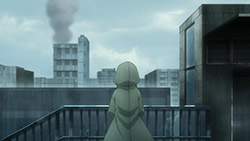 |
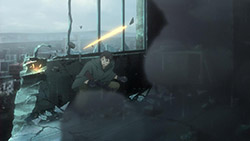 |
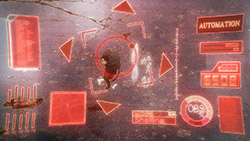 |
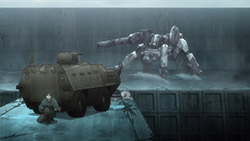 |
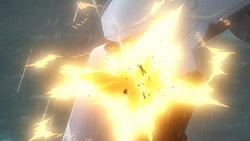 |
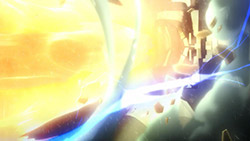 |
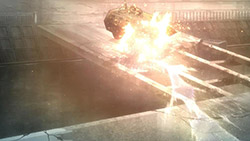 |
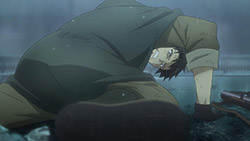 |
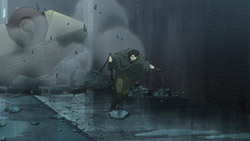 |
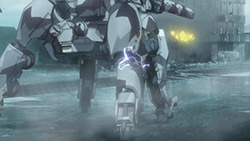 |
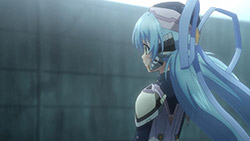 |
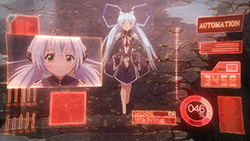 |
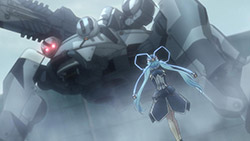 |
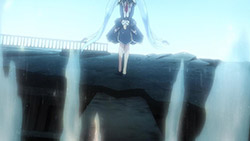 |
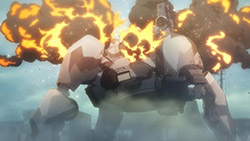 |
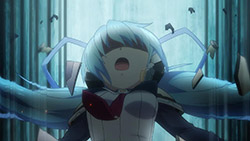 |
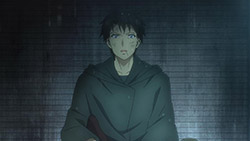 |
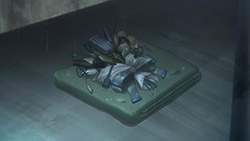 |
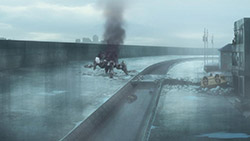 |
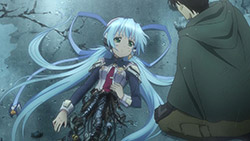 |
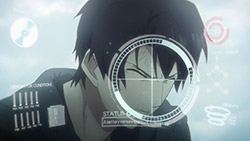 |
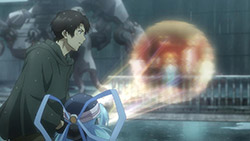 |
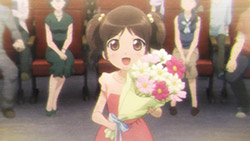 |
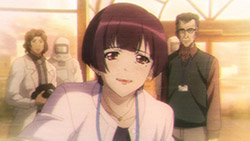 |
 |
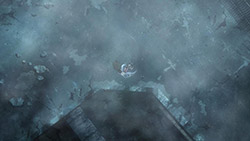 |
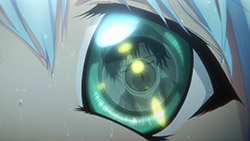 |
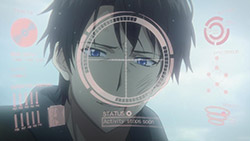 |
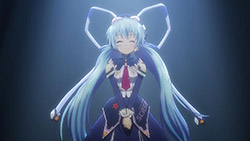 |
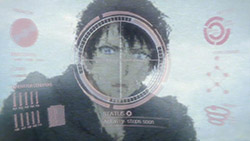 |
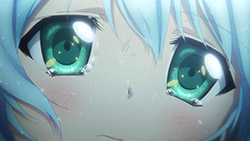 |
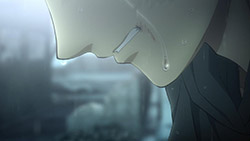 |
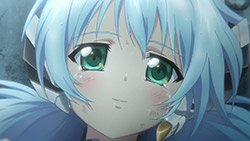 |
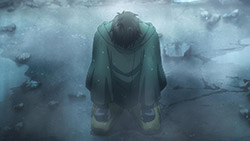 |
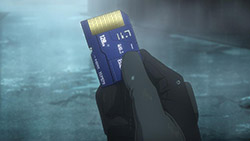 |
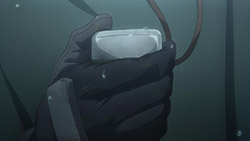 |
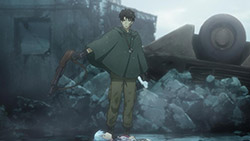 |
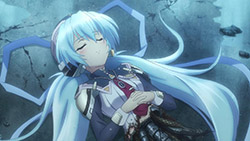 |
 |
「ゆめみの願い」 (Yumemi no Negai)
“Yumemi’s Wish”
When I first started blogging Planetarian I mentioned that while I enjoyed reading the visual/kinetic novel—and I enjoyed this adaptation too, just to make clear—I had some mixed feelings about it and in particular took issue with the ending. I remember that, when I finished reading Planetarian more than 10 years ago, I was still wondering to myself, ‘Why did Yumemi have to die?’.
I do admit that I’m someone who tends to prefer idealism rewarded in my stories. I think real life gets depressing enough as is, and fiction can use the happy endings, especially if the characters have earned them through struggle. But I find bittersweet a compelling flavour too, and understand its use. I also don’t get up in arms when characters are killed. Death is a serious, evocative issue that fiction should not be shy to grapple with. What doesn’t sit well with me is when death is used simply for an immediate shock factor, or to spring a surprise downer ending. Not everyone will agree with my position, but I feel that writers, being in full control of their story world, have a certain responsibility to their characters. If a writer wants their audience to care about the characters, they have to care about them, too. So they have to be very careful when they kill a character through a trick of fate, like a misfire. That’s diabolus ex machina, author intervention, and risks disrupting suspension of disbelief by reminding the audience that everything that happens in this story is arbitrary.
The issue I had with the VN ending is really the issue of a death being sad versus something being tragic. Sad deaths things happen all the time, for whatever reason, but in tragedy (in the classical sense) death isn’t just sad. Death is necessary, even karmic, brought upon a hero by their own fatal flaws. Macbeth, for example, commits regicide, while breaking the rules of hospitality no less, ultimately destroying his life, so he had to die. Death is meant to be cathartic, an emotional release. Now, I don’t actually believe that tragedy is the highest art and that all literature should aspire to it, but I do think death should be given some meaning in the overall story (which is why Romeo and Juliet is my least favourite Shakespearean tragedy, as to the modern reader people die just because of stars and stupid teenagers). I found that Planetarian ~ Chiisana Hoshi no Yume‘s ending was depressing but not tragic. I should note now that the VN ended quite a bit darker than the anime. By my recollection, it was implied that the Junker actually also dies, and the entire thing was set to more sombre music. But it didn’t feel like he, nor Yumemi, really, had to die; in fact the story lead quite naturally to a happy(-ish) ending until the last moment when Yumemi needed to sacrifice herself for the sake of drama. I came out of it all feeling depressed, but not quite satisfied. Of course, the anime ends on a somewhat more hopeful note, perhaps in the understanding that it’s leading to the Hoshi to Hito movie, which is based on a drama CD I consider to be a much more complete ending to Planetarian.
Perhaps part of the point of this kind of ending, though, is that the world is senseless and meaningless, like death. I described the previous episode as something of a fight between Yumemi’s innocence and cruel reality, and in a way in this episode, Yumemi loses. Even she must realise that the world, the city, and the shopping mall with her planetarium was very, very broken. But she still could not comprehend why. Her image of the human race she was built to serve, full of friendly faces who come together for their love of stars, is wholly incompatible with the human race that managed to destroy itself. ‘Robots were created for the happiness of humans,’ Yumemi believes. Well, certainly not this one. Sure, even a warbot is just doings its job, protecting the city, but it’s certainly not bound by the Three Rules of Robotics. No robot created for happiness has a railgun. No, the Junker knows—there was no longer anyone who would need a harmless customer service droid in their world. What they wanted were robots that killed people.
And so the dream of heaven, one that is not, unlike mortal earth, so thoroughly divided. One last lie for Yumemi, who has been told lies by everybody (including herself) all this time. That outside the quarantine wall, in the blasted post-apocalyptic wasteland, is Robot Heaven, and she is going there. Yumemi believes—or perhaps chooses to believe. But is this not the fundament of spirituality? Whether you believe that there is something more to this world? A world that is ultimately cruel, bleak, and does not care? And so Planetarian asks one more time: even in its thoroughly crapsack world, can there be anyone who still appreciates gazing to the sky and dreaming of stars? Well, there was at least one.
Full-length images: 20.
ED2 Sequence
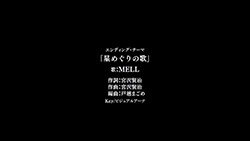 |
ED2: 「星めぐりの歌」 (Hoshi Meguri no Uta ) by MELL
Epilogue:
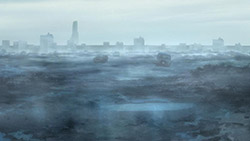 |
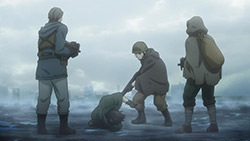 |
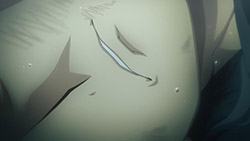 |
Final Impressions
It doesn’t feel right writing final impressions for Planetarian before the Hoshi no Hito movie, as I don’t consider Planetarian to be a complete experience until then. But it won’t be shown until September, and will take even more time to come to DVD so I can actually blog it, so perhaps I’ll very briefly give some thoughts on the adaptation for now.
Overall, my commendation to director Tsuda Naokatsu, his team, and David Productions for their work on Planetarian ~ Chiisana Hoshii no Yume. I found it a good adaptation. Sure, it was also on the whole an easy production, since Planetarian was short, linear, and had a cast of only two, but credit where it’s due nonetheless. Planetarian still came from a very text heavy medium, and converting that to anime still takes some work. I myself wanted to see what was a very minimalistic piece come to life visually, and on the whole I think it was delivered. The melancholic after-the-end atmosphere came out well in the art, and I often appreciated the camerawork since, of course, that was not the kind of thing you’d have in a VN.
Planetarian, as an anime, is still ultimately a somewhat trimmed and compressed adaptation, being only roughly an hour and a half of animation time altogether, but I felt that it still managed to capture the essence and spirit of the story, which is the important part. There was also some material changes changes between VN and anime, mostly in some technical details about the world and some changes to the ending that I noted before. The technical details aren’t too consequential, as I think they just allow the direction more flexibility (for example, in the VN the rain was deadly, but in the anime that would mean the Junker would have to be hooded or indoors all the time, which is unwieldly). As for the ending, I feel that it was still ultimately an emotional scene. Sure, perhaps not the exact same spectrum of emotions, but I think it was effective nonetheless. I did have some issue with the original ending, though, and as such perhaps would be more welcoming of change than more stalwart lovers of the VN, but ultimately it did not feel like the production team made the changes frivilously, and knew what they were doing.
Since this anime was obviously intended to lead to the movie, I don’t think we can make a fully informed conclusion on whether the direction choices are fully vindicated until then. Even as it stands, though, I would say that Planetarian is a perfectly good watch that is fairly easy to recommend. If you’ve been following along until now, I hope that it at least stirred you enough to want to watch Hoshi no Hito as well, in which case we’ll probably have more to talk about then as well.

WAHAHAHAHA!!!! 🙁
I’m with you homie…..(no homo)
These kind of shows are what the medium of anime was made for.
There were a lot of things to me shown at the start that suggested that they were planning to kill off Yumemi. The way she started to talk about her recharge situation was one, the other being her questioning the concept of death when they’re talking about God. Knowing she was going to die did lessen the impact of said death, but it was still sad. I think they both deserved a happy ending, I would have accepted one where he devotes his time to rebuilding her.
I didn’t know anything about the source material either. The show just had several signs pointing to a sad ending from the beginning.
I also liked the show enough to pre order the Blu ray. I hope other studios do more of these ONA type shows. And before I forget, thankyou for covering the show Passerby, it was a unique one for sure.
You can count me as one person who liked the show and is looking foward to the movie
It is indeed a very beautiful, yet very sad, story. And I must say that not all hope was lost for the humans of this story, yes, there is only one person out there that truly loves the stars but that´s enough, one person is more than enough to bring hope to that desolated sad world so, in a way, Yumemi´s life had meaning, she gave that poor guy a hope he can spread to others.
What let the War Machine Robots run wild, was also the cause of Humans. Hacking or violent Virus to attack their own Owners. Or this War Machines here just “protect” these Isolated Space, and the Human survivors are forced to stay out of them
But the Trailer for the Movie already spite it out my important key scene.. But oh well, i still think i want to watch it
Even though very sad I thought it was done well
I am drained that was so sad but Yumemi had a lot of good memories. Saving Junker was a set directive. However she was so human like wanting to cry and you here a sense of sadness. Hopefully Junker can do something with the memory !
On a side note some of The David Production Studio had some heavy hitters that left Gonzo which did Chrono Crusade ( also a very sad ending ) I wonder if they broght some of the ideas frm that anime over ( I am just guessing )
I just liked how human Yumemi was better at being human than humans .Look at what they did. The religious concept by Yumemi was quite compelling another human belief
From the looks of it this OVA points towards the Hoshi no Hito ending.
“Hoshi no Hito (星の人?, lit. “Man of the Stars”)
This story occurs some time after the events of the kinetic novel, as human civilization struggles in a losing battle against the poisonous rain. Three of the last inhabitants of a nearly abandoned underground fallout shelter—named Levi, Ruth, and Job—find a quaint old man collapsed in the snow outside the bunker. When they bring him down, they are surprised to hear the adults calling him “Man of the Stars”. The children grow quite interested about his strange nickname, as well as the fact that they have never seen a visitor from the outside world. The old man recovers a bit and has the children help him in putting together a portable planetarium projector. This story offers an ultimate conclusion to the story in the kinetic novel. “
“LEAD to the movie”?? … this WAS a movie!
It certainly did feel like a movie sliced up into 5 parts, I agree!
It was a dumb decision attacking the heavily armed crab unit in the wet condition. If only his weapon and ammunition round wiped off clean and dry.
pressing matter was her Battery running dry
to be honest:
When she entered the Emergency Backup Batteries mode, i wished he rush to the (now out of function) Battle droid and somehow divert the Power Reactor of it to fix her “Blood” problem. But i knew this Story was already set in Stone long ago.
This was just my “Wish”, i am allowed to dream or not? 🙂
Hmmm maybe he should just plug the cable wires to the damage crab main power unit as a backup.
but then how can ensure that both Power Cores are the same? in Nippon the North are on 50Hz and the South on 60Hz (as we saw it on the Fukushima news). So perhaps her Power Source are out of “War Droids” standards and they are not compatible and would hurt her more.
But this would be decision of their Creator aka Manga-ka
or She has 12V Batteries but this War Droid run with 42V for more power
I feel this is more a hindsight comment. Until you’re actually in that situation yourself, you can’t really judge. It may have been a bad move, but if you feel you have no other choice..
The problem is you not thinking the best possible solution to avoid engage the heavily armed unit.
Damn it, why does Yumemi have to die. :'(
I liked this series a lot overall, but for me they laid it on too thick at the end. Sometimes less is more, and I think the long ending scene could have used a lighter touch.
What are you talking about? Yumemi didn’t die. She’s just resting inside that memory card waiting for a new body. Right? Anyways that was still very sad and I cried a lot. I really liked the concept of robots programmed to stop other rampaging robots.
inside this memory Card are stored memories, the show did not tell us if there is also her unique OS and more that make the new robot the same
https://randomc.net/image/Planetarian/Planetarian%20Chiisana%20Hoshi%20no%20Yume%20-%2005%20-%20Large%2035.jpg
Holy shit, a 128 exabyte SD card, goddamn.
Anyways, it was an okay experience and story for me. I find the background visuals to have a great degree of detail in them and I believe the casting choices to be very, very fitting. Other than that, I didn’t get much out of the show save for a 128 exabyte SD card and a few ideas on my theory of robotics. I did have a few milliliters of fluid building up in my right eye at the show’s conclusion tho :’)